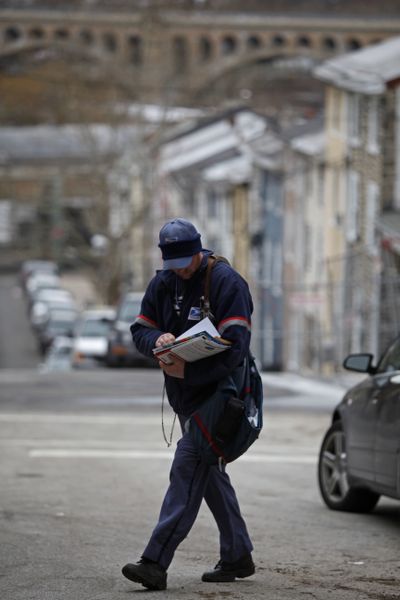Saturday mail delivery back on chopping block
Postal Service facing ‘severe income gap’

WASHINGTON – Facing a projected $238-billion loss over the next decade, the U.S. Postal Service on Tuesday proposed a 10-year plan to bring it into financial health, including ending Saturday mail delivery.
The Postal Service, which is regulated by Congress and the administration but operates without any federal assistance, faces, “a severe income gap that we absolutely have to close,” Postmaster General John Potter said at a briefing with congressional staff and private stakeholders, whose businesses rely heavily on the mail delivery service.
Such cost-cutting measures have been proposed – and largely ignored – in the past. Last year, Postal Service representatives pushed multiple times at hearings on Capitol Hill for the authority to end Saturday delivery, change the way the service pays out retiree health benefits, and raise prices – all actions that require congressional approval.
To strengthen its point this time around, the Postal Service hired three independent consulting firms – at a total cost of $4.8 million – to assess and offer recommendations about the service’s financial stability.
The Postal Service predicted that first-class mail volume will drop 37 percent by 2020. Bob Bernstock, Postal Service president of mailing and shipping services, said that “creates an urgency that was not there before.” The Postal Service generates about half its revenue from first-class mail.
The service has identified measures within its authority to close that shortfall by about $123 billion over 10 years. The Postal Service can’t close the remaining $115 billion without being granted authority to implement additional measures, including ending Saturday delivery, estimated to save $40 billion, Bernstock said.
Ending Saturday service and changing the payment structure for retiree health benefits make up the bulk of the savings. Other savings would come from personnel changes and price increases, though the price for a first-class stamp will remain at 44 cents through 2010. Post offices would remain open on Saturdays.
Rep. Danny K. Davis, D-Ill., a member of the subcommittee that oversees the Postal Service in the House, said that the proposal was “heading in the right direction,” but that it is by no means a done deal.
Sen. Tom Carper, D-Del., who heads the Senate subcommittee with jurisdiction over the Postal Service, said the service “must be allowed to make the business decisions they need to stay competitive and viable in the years to come,” suggesting a willingness to grant the decision-making authorities that the Postal Service has requested.
The unions that represent mail carriers and post office workers oppose ending Saturday delivery.
“I do not believe that weakening our commitment of six-day service to the public will enhance the long-term position of the Postal Service as a critical element in our nation’s economic infrastructure,” said Fredric V. Rolando, president of the National Association of Letter Carriers.